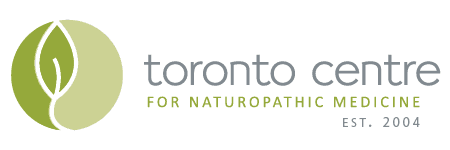Depression
Depression is well-treated using naturopathic medicine.
Depression is not used to describe temporary feelings of sadness, and is not a sign of weakness or a condition you can “snap out of”. Depression is a chronic illness that profoundly affects quality of life.
The cause of depression is unknown, but a variety of factors may be involved, including genetic factors; differences in hormone balance and brain chemistry; and presence of stressors (e.g., death of a loved one, financial pressure).
Untreated, depression can lead to anxiety, alcohol and substance abuse, heart disease, poor work or school performance and relationship difficulties.
Seek professional healthcare if you have daily depression symptoms for more than two weeks.
Seek emergency medical care if you are having suicidal thoughts.
Symptoms of Depression
Possible symptoms of depression include:
- Feelings of sadness, worthlessness or hopelessness
- Loss of interest in normal daily activities
- Loss of interest in sex
- Poor concentration
- Indecisiveness
- Irritability
- Restlessness
- Insomnia
- Unintentional weight gain or loss
- Fatigue or weakness
- Loss of interest in normal daily activities
- Suicidal thoughts
Treatment of Depression Toronto Centre for Naturopathic Medicine
At Toronto Centre for Naturopathic Medicine, the goals of treatment for depression are to improve mood, reduce other related symptoms, manage side effects of conventional depression medications and determine triggers of depression in order to prevent recurrence of depressive episodes.
Conventional treatment for depression may include psychotherapy, and a variety of antidepressant medications. These treatments may have short- or long-term side effects.
For this reason, you may choose to try natural treatment to possibly avoid use of conventional medications, or together with conventional medications in order to decrease dosages of conventional medications required to manage your depression symptoms.
Naturopathic treatment of any chronic health concern must be recognized as a process that involves:
- Identifying specific treatment goals
- Development by your naturopathic doctor, of a thorough understanding of all factors affecting your health, including physical, psychological, emotional and lifestyle factors
- Development of a comprehensive treatment plan
- Implementation and maintenance of that plan through periodic monitoring and adjustment
At Toronto Centre for Naturopathic Medicine, a typical approach to treating depression may be to:
- Identify and address underlying factors in your lifestyle (e.g., stress, long-term use of certain medications, substance abuse, general perspective) or general health (e.g., illnesses that have depression as a component, other illnesses that may be adding stress to your life) that may be contributing to your depression symptoms
- Improve ability to cope with stressors using relaxation (meditation) training
- Correct brain chemistry factors using botanical (herbal) medicines
Where appropriate, a number of therapeutic options are available, to be used alone, or more often in a complementary fashion, including:
- Nutritional counseling
- Nutritional supplements
- Metabolic detoxification protocols
- Botanical (herbal) medicines
- Acupuncture
- Homeopathy
- Bowen Therapy
- Suikodo™
- Hydrotherapy
- Exercise prescription
- Relaxation (meditation) training
- Lifestyle medicine and counseling
Treatments provided by naturopathic doctors are covered by most extended healthcare plans.
References
Depression (major depression) [Internet]. Mayo Foundation for Medical Education and Research; [cited 2009 Feb 18]. Available from: http://www.mayoclinic.com/health/depression/DS00175.
Depression (major depressive disorder) [Internet]. Mayo Foundation for Medical Education and Research; [cited 2015 Mar 22]. Available from: http://www.mayoclinic.org/diseases-conditions/depression/basics/causes/con-20032977.


